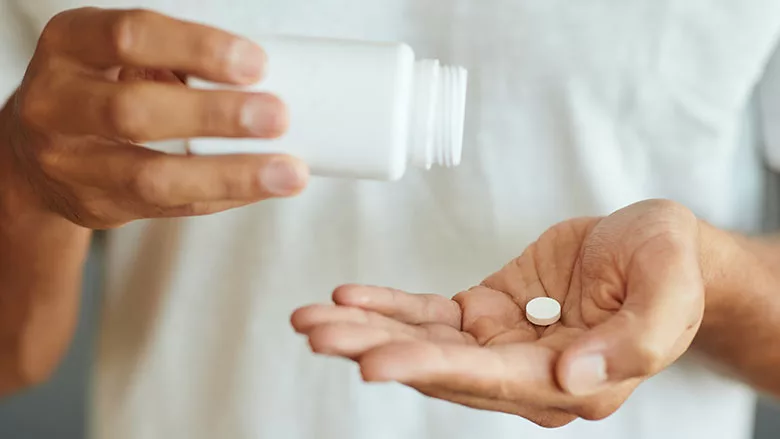Mental Health Safety for Drillers? It Goes Beyond Pills
Coworkers, Friends and Families Offer Critical Supports

Antidepressants have a place in mental health treatment, of course. However, as with other health conditions, coworkers, friends and family may need more supports than just a pill.
Source: Getty Images
Recently, I was reminded of an important safety topic we rarely talk about: mental health. When we talk about mental health, we also have to consider some of the clinical treatments and the risks associated with some of those treatments.
In the past three years, Jake Fletcher, David King and I have all written articles about drill crews and mental health. In November 2020 I wrote:
Drillers are a resilient, rough-and-tumble bunch, so I’m sure a number of you are saying to yourselves, “Everyone has times they are not happy. Just suck it up and move on.” But that’s not always possible. For some people, the feeling of unhappiness lingers and creeps into every corner of life. This leads to diminished productivity and possibly domestic or professional issues, further exacerbating the situation.
Other crewmembers can, depending on the situation, assist the employee with finding ways to deal with depression.
But what comes next if the employee reaches out for help? They could see a counselor, a doctor or both. If they see a doctor, what’s the likelihood that doctor prescribes some sort of anti-depression medication? In well over half of cases, they will be. A recent study in England found the number of antidepressants prescribed over the past six years has increased by 34.8%, from 61.9 million items in 2015/2016 to 83.4 million items in 2021/2022. It is a trend happening in most of the major world economies.
It’s usually a good thing when people reach out and ask for help, but the risks associated with depression don’t always end once someone begins taking medication.
Of course, it’s usually a good thing when people reach out and ask for help, but the risks associated with depression don’t always end once someone begins taking medication. Many times, when a person's depression begins to lift, they may feel better but still feel some level of hopelessness. The person may feel less helpless but still feel depressed. They may think about suicide as a way out, whereas before they were too immobilized to make a suicide plan.
Doctors prescribe antidepressants for more than just depression, for example for anxiety and obsessive-compulsive disorder. Patients of these medications have reported suicidal thoughts and intentions. While that’s not the treatment norm, when it happens physicians — not to mention family members, friends and coworkers — consider it worrying. If a depressed person on antidepressants is suicidal, that is not so surprising. If someone not suffering depression takes antidepressants for other reasons and becomes suicidal, that raises questions about the safety of these medications.
This brings me to the story of an acquaintance. Let’s call him James. James had worked in the industry his entire life, but recently retired and started working on all the stuff that he had hoped to do one day. By all accounts, he enjoyed the retired life. Last fall, a series of catastrophic events happened around James. First, a good friend of his had a massive stroke while they ate breakfast together. Then, a long-time pet passed away. Finally, his sister lost her battle with cancer. This all happens within the span of a couple weeks.
James begins feeling “anxiety” and stops doing many of the things he previously enjoyed. His doctor prescribed medication to help ease anxiety. After taking this medication for a few weeks his anxiousness improved, but it some of the side effects. The tiredness, dizziness on standing and other effects made it hard to do some things he wanted to do, so his doctor changed the medication.
Within a few weeks of the change, James begins to have suicidal thoughts. One Sunday he goes to the ER and tells them about it. I am not sure how or why, but James was not admitted. Nor did he stop taking the medication. His family was concerned and worked to have someone with him as often as possible. A week later, although showing signs of improvement, James followed through on those thoughts. It devastated the family he loved. It did not appear premeditated, as he left no note and made no goodbye gestures. Most likely, the chemistry in his brain from the medication influenced his actions swiftly and without allowing his true feelings or thoughts deter him.
Researchers have found evidence that individuals taking antidepressant medication may be at even higher risk of suicide than individuals whose depression is easing for other reasons. More than 44,000 people die by suicide in the U.S. each year, according to a 2022 report by the American Foundation for Suicide Prevention. Many experts now consider therapy a better treatment route for many patients than antidepressants. However, good therapists can often have long waiting lists. A lack of other treatment options — sometimes compounded by an unwillingness to open up to strangers — leads to unnecessary prescriptions.
In the end, there is no simple answer. Try to keep an eye on your employees’ well-being. Maybe make sure that they know the hazards of taking antidepressants using a safety meeting or some other setting — maybe First Aid/CPR training. Perhaps use one of the online therapy providers, such as www.betterhelp.com. Be a willing ear for someone and really listen to their concerns. If you really have concerns about someone, reach out to suicide prevention support services:
- Suicide Prevention Services of America, www.spsamerica.org
- American Foundation for Suicide Prevention, afsp.org
- Dial 988, the Suicide and Crisis Lifeline
- Text “talk” to 741741, the Crisis Text Line
Until next month, stay safe, hug your loved ones and keep turning to the right.
Looking for a reprint of this article?
From high-res PDFs to custom plaques, order your copy today!



